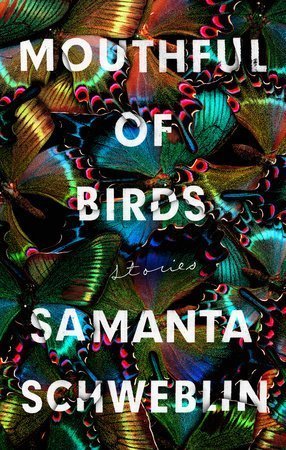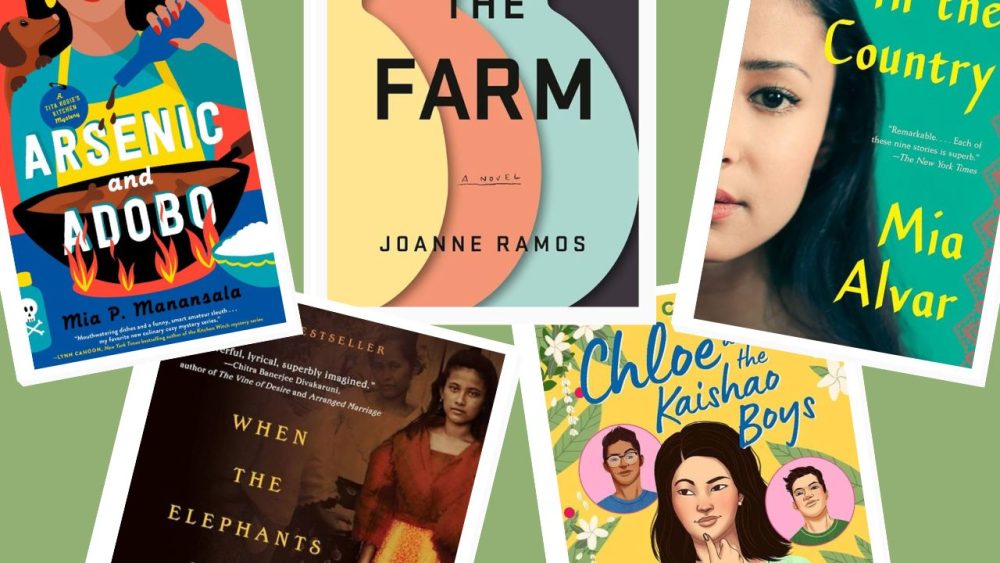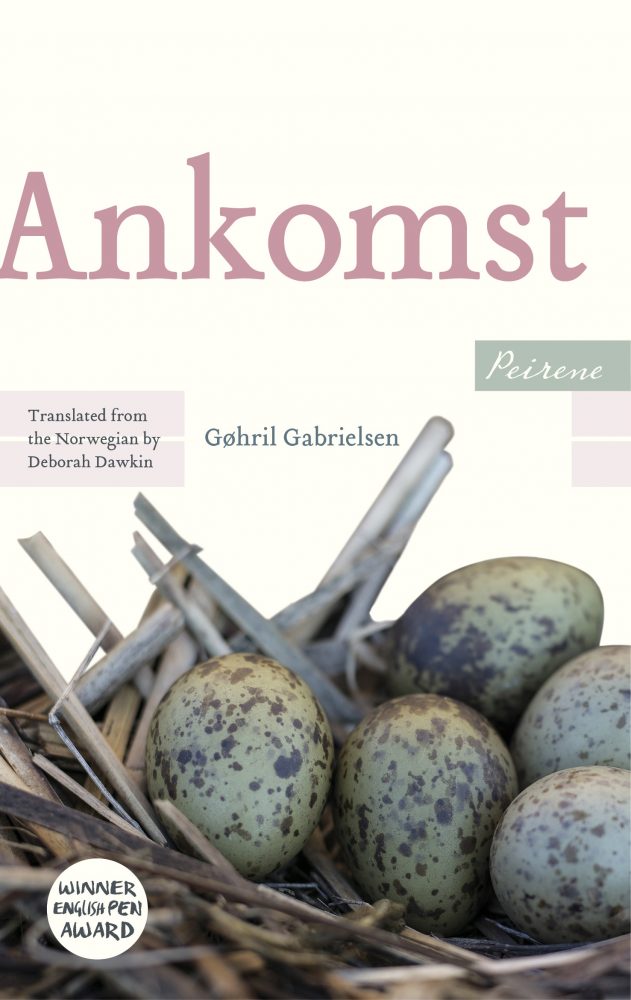Translated from the Spanish by Megan McDowell
There are many ways to approach creating a book of short stories: you can focus on a theme and explore it from different angles, you can write about a single location – a city or a country, or you can simply write what comes to mind. Wait for those stories that creep into existence behind your eyes to fall asleep, catch them, and put them to paper.
Samanta Schweblin has, with Mouthful of Birds, opted to do all of the above. Some of these stories lean heavily on themes of feminism and the Kafkaesque, while others are so surreal as to be simply enjoyed and gawped at. This book is, more than any other release in early 2019 (except, perhaps, Jokes for the Gunmen), an experience. A very exciting, frightening, and unsettling experience.

Mouthful of Birds
Let’s talk about the title for a moment. Upon receiving a copy of this book, I marvelled at its cover for a while: this pastel collage of neon butterflies overlapping one another, clearly with some link to one of the stories. The title, painted onto these butterflies, awkwardly describes a totally different animal, but its enigmatic phrasing – Mouthful of Birds – had me excited to read the story of the same name.
Before the end of the first page of Mouthful of Birds, however, the literal nature of the name hits you so hard that you’ll begin to let out a kind of nervous laughter. The books titular story describes a little girl who only eats birds – live birds, bones and all – which her mother reluctantly feeds to her.
‘I see the paintings hung in their … living rooms, and I think that those guys deserve to see themselves … smashed on the ground by my hand, and they … seem to agree when they stand in front of the paintings … I mean, they’re really good pictures.’
Titles are used to fantastic effect in this collection. The second story, Preserves, conjures up images of jars filled with jam and marmalade, but the truth of the meaning here is something far darker. As the reader gets used to the subversive nature of these titles, they are hit with a curveball when they arrive at Heads Against Concrete, a story which repeatedly delivers what you are now imagining.
Having a collection of twenty stories means carefully picking, and having translated, twenty clever and suggestive titles. Never before have I given so much consideration to titles (though I confess I am a sucker for a good book/film title, band name, restaurant name etc.) but here they are used to such powerful effect as to deserve real admiration.
In Mouthful of Birds, Schweblin has a remarkable knack for writing subtly surrealist tales while at the same time almost denying – through her writing – that there is any surrealism at all. There is a heaviness, a black gravity, to her stories which demands they be taken seriously, despite how unsettling and bleak they often turn out to be.
The words hidden between the words are like an insistence from the author that she be taken seriously, that surrealism is realism, and she won’t hear a word against that. This kind of confidence in one’s own uncanny world view demands admiration.
‘Sitting on a rock beside the door, she picks grains of rice from the embroidery on her dress, with nothing to look at but the open fields, the highway, and, beside the highway, a women’s bathroom.’
The book’s opening story, Headlights, is a wonderful first example of this, as it describes a woman who, at the end of her wedding day, is left at the roadside by her new husband. They stop for her to use the restroom and, when she comes out, he is gone.
Curiously, there is no male toilet, only female. From there she meets another lost bride who had been cast aside just the same, and in the fields the voices of wailing lost brides cursed to sit by the roadside and wait.
Battling against the expectation of society for a woman to not only be married, but to find joy and a sense of completion in marriage, is clearly sewn into the fabric of this tale, and this theme hits like a freight train. But it is also told through a very surreal story, the kind of surreal made famous by Franz Kafka.
So this is how the book begins, and it continues on in much the same way. Every tale has a theme that may resonate with you deeply or may pass you by completely (I’ll admit, a good number passed me by, but I’m confident they’ll hit home with many other readers). Each one has an unsettling quality told with black humour or no humour at all. They will stay with you, though, whether you want them to or not.
Conclusion
These stories are the things you can’t unsee. They tell you things you didn’t want to know, and perhaps are better off now knowing, or perhaps not. They demand pause for thought, to unpack their meaning or simply to appreciate them.
Fans of Schweblin’s novel Fever Dream will love it but this is also a perfect starting point for anyone who’s curious about short stories or surrealism. I don’t wish to count my chickens, but this might already by the defining short story collection of 2019, and to arrive so early on, well, that’s a real kindness.
If you’re interested in this book, you may also like All My Goodbyes



